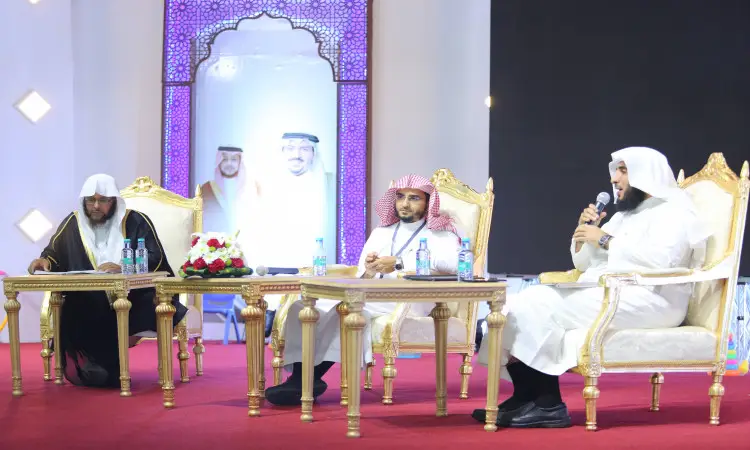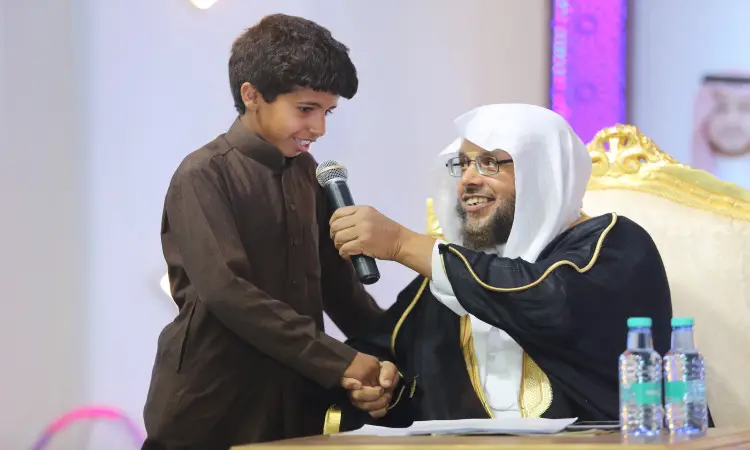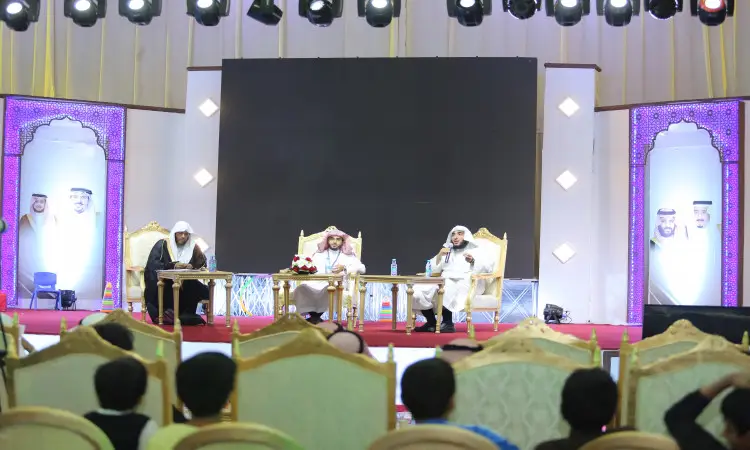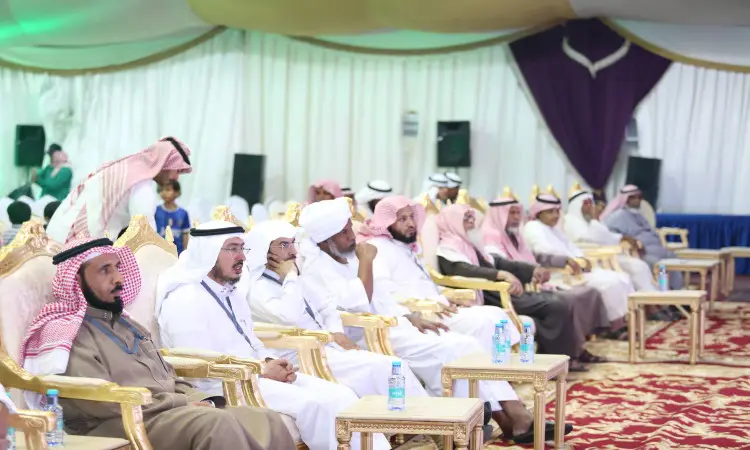The university warned against complacency in dealing with messages that arrive through social media sites full of heresies, extremist messages or messages calling for atheism, whether intentionally or unintentionally by ignorant people for the purpose of entertainment or by malicious people as part of attempts at intellectual invasion that must be addressed firmly, and not to engage in doubts or suspicions.
This came during the seminar entitled "Towards a Safe Thought", as part of the intellectual programs of the "Awareness, Health and Education" campaign, which is being held by the university in Aqlah Al-Suqur Governorate for 7 days and includes a number of medical, intellectual, awareness and entertainment programs, presented by more than 600 specialists from students and employees of the university.
In his speech to the audience, Dr. Hamad Al-Saqabi, Vice Dean of Community Service, emphasized that the characteristics of Islam and the righteous predecessors are characterized by moderation and moderation, as the Kingdom seeks to maintain intellectual security by protecting society through specialized courses, seminars and conferences to protect future generations.
For his part, Dr. Hamoud Al-Sayegh, Assistant Professor in the Department of Sunnah at the University, spoke about the many blessings of Allah on Muslims, including the fortification of Allah's law and His Sharia, stressing that the mind is a window that must be strengthened from destructive ideas, so that thieves do not infiltrate them, calling for verification and not to be drawn behind social media platforms that are no longer reliable in most cases.
Dr. Yasser Al-Yahya, assistant professor in the Department of Doctrine at the University's College of Shari'ah, stressed that the concept of security is against fear and obtaining tranquility and psychological comfort, pointing out that intellectual drift is caused by moving away from God or exaggeration and moving away from the Book and Sunnah and following what is similar, warning against delving into them through social media programs, which everyone must be discerning and aware when dealing with them.
Al-Yahya also emphasized that the many heresies that are circulated through WhatsApp, for example, are of the type of intellectual invasion that must be guarded against, explaining that one of the main reasons for being drawn behind these falsehoods is due to bad company or tendentious electronic platforms.
This seminar comes within the framework of the university's continuous efforts to confront the proponents of misguided ideology and to protect young people from being drawn behind the propagators of sedition and those with whims, as the university has allocated a package of intellectual programs that it offers throughout the days of the campaign and aims to protect society from destructive ideas.





